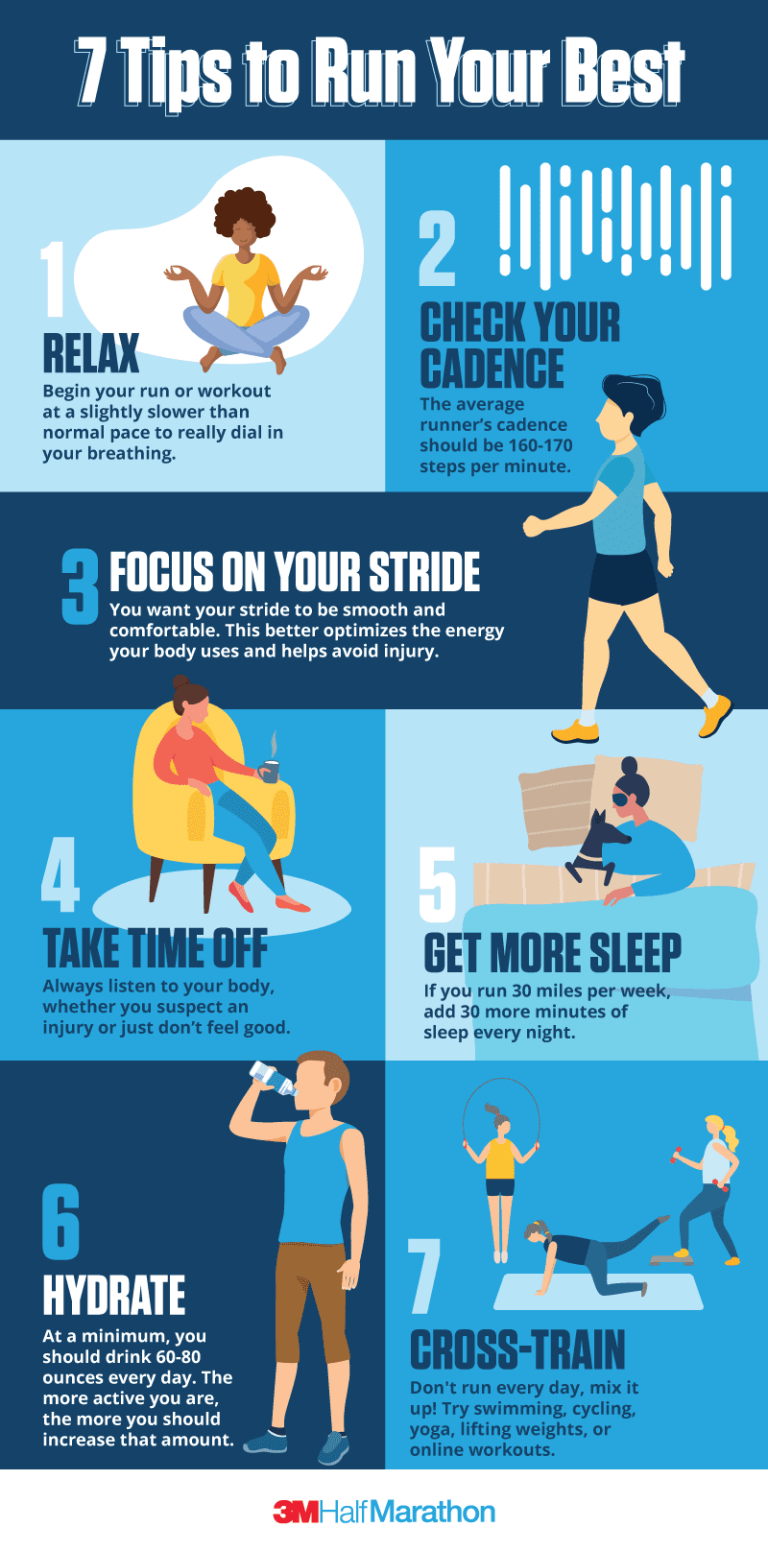Can Running a Marathon Kill You?
Running a marathon can, in rare cases, lead to death due to extreme physical exertion, heat stroke, or pre-existing health conditions. These risks can be mitigated with proper training, hydration, and medical clearance.
Participating in a marathon is a challenging and rewarding feat for many runners. However, it’s crucial to be aware of the potential risks involved. While the likelihood of a fatality is extremely low, it is not impossible. Understanding the potential dangers, implementing appropriate training and preparation, seeking medical advice, and being mindful of one’s physical limitations can significantly reduce the chances of encountering life-threatening situations during a marathon.
This article explores the potential risks of running a marathon, provides practical tips for mitigating these risks, and offers guidance for a safer, more enjoyable marathon experience.

Credit: www.today.com
Overview Of Marathon Running
Marathon running is an exhilarating sport that tests your physical and mental endurance, but can it be deadly? While extreme cases of fatalities have occurred, proper training, adequate preparation, and listening to your body can significantly reduce the risks associated with running a marathon.
Marathon running is a challenging and exhilarating sport that has gained immense popularity over the years. Running a marathon involves covering a distance of 26.2 miles or 42.195 kilometers. It tests not only the physical endurance of the participants but also their mental strength and determination. In this section, we will explore the history of marathons, the training required to prepare for one, and debunk the myth surrounding whether running a marathon can cause fatalities.
History Of Marathons
The origins of marathon running can be traced back to ancient Greece. According to legend, the first marathon was run by Pheidippides, an ancient Greek messenger, who ran from the city of Marathon to Athens to deliver the news of a Greek victory over the Persians. The distance he covered was approximately 26.2 miles, which later became the standard marathon distance.
Inspired by this historical event, the modern marathon was born. The first official marathon race took place during the 1896 Summer Olympics in Athens, Greece. Since then, marathons have become synonymous with endurance and sporting achievement, attracting participants from all walks of life.
Training For A Marathon
Preparing for a marathon requires a disciplined and systematic approach. A solid training plan is essential to ensure that runners build up their stamina, strength, and endurance gradually. The duration of training can vary depending on an individual’s fitness level and experience, but it typically ranges from 12 to 20 weeks.
A well-rounded training program includes a combination of long runs, speed work, strength training, and rest days for recovery. Long runs help build endurance, while speed work improves the runner’s pace. Strength training, such as cross-training and resistance exercises, helps prevent injuries and enhances overall fitness.
It is important for marathon runners to listen to their bodies and gradually increase their mileage over time. Overtraining or ramping up mileage too quickly can increase the risk of injuries and adversely affect performance. Proper nutrition, hydration, and adequate sleep also play a crucial role in the training process.
By following a well-structured training plan and incorporating the necessary components, runners can increase their chances of successfully completing a marathon while minimizing the risk of negative health effects.
Physical Risks Of Running A Marathon
When it comes to physical activity, marathon running is often considered an ultimate test of endurance and determination. However, the grueling 26.2-mile distance also comes with physical risks that should not be underestimated. It’s important to be aware of the potential health hazards associated with running a marathon, especially for those who are considering taking on the challenge for the first time.
Cardiovascular Risks
Marathon running puts significant strain on the cardiovascular system, with the potential to trigger cardiac events in susceptible individuals. The prolonged and intense physical exertion can lead to a temporary imbalance in the body’s electrolytes, as well as elevated heart rates that may exceed safe levels. Conditions such as myocardial infarction, arrhythmias, and even sudden cardiac arrest can occur during or shortly after a marathon. It’s essential for runners to undergo thorough medical evaluations to assess their cardiovascular health before attempting a marathon, especially if they have pre-existing heart conditions.
Heat-related Illnesses
The demands of running a marathon under the hot sun can increase the risk of heat-related illnesses such as heat exhaustion and heat stroke. Dehydration, coupled with the physical strain of endurance running, can lead to an inability to regulate body temperature effectively. Heat-related illnesses can cause dizziness, confusion, and in severe cases, organ failure. Proper hydration, acclimatization to the heat, and access to cooling stations along the marathon route are critical measures for reducing the risk of heat-related complications.
Preventative Measures For Marathon Runners
Marathon runners can minimize the risk of adverse health effects by taking preventative measures. Proper training, hydration, and listening to the body’s signals are crucial in avoiding potential risks associated with long-distance running. Implementing these measures can help maintain a balance between the physical demands of marathon running and overall well-being.
Preventative Measures for Marathon Runners Running a marathon can be a rewarding experience, but it’s important for runners to take proactive measures to ensure their safety and well-being. By incorporating preventative measures, marathon runners can minimize the risk of potential health issues. Proper medical check-ups, hydration, and nutrition are essential elements to consider when preparing for a marathon. Medical Check-ups Before embarking on marathon training, it’s crucial to undergo a thorough medical examination. Schedule an appointment with a healthcare professional to assess overall health, including cardiovascular and musculoskeletal systems. This will help identify any underlying conditions that could pose a risk during intense physical activity. Blood pressure, heart rate, and joint flexibility should also be evaluated to gauge the body’s readiness for marathon training. Hydration and Nutrition Tips Maintaining optimal hydration and nutrition is key for long-distance runners. Proper fluid intake throughout training and on race day helps prevent dehydration and heat-related illnesses. Incorporating a balance of carbohydrates, proteins, and healthy fats into the diet is essential for promoting sustained energy levels and muscle recovery. Consider consulting with a nutritionist to develop a personalized meal plan that aligns with marathon training needs. In addition, here are some essential hydration and nutrition tips for marathon runners: – Drink water regularly before, during, and after training sessions. – Incorporate electrolyte-replenishing drinks for longer runs to maintain mineral balance. – Consume a well-balanced meal 3-4 hours prior to a long run to ensure adequate fuel reserves. – Include easily digestible snacks like bananas and energy gels for mid-run energy boosts. By prioritizing these preventative measures, marathon runners can optimize their physical preparedness and minimize the risk of potential health concerns during training and on race day.Psychological Effects Of Marathon Running
Marathon running can have both physical and psychological impacts, with the extreme physical exertion triggering stress hormones and potentially harmful effects on the heart. However, with proper training and precautions, the risk of fatal outcomes is minimal. The psychological benefits, such as increased self-esteem and confidence, often outweigh the potential risks.
Mental Preparation
Marathon running is not just a physical challenge, but also an intense mental and emotional journey. The psychological effects of marathon running can be both empowering and daunting. In order to successfully conquer the 26.2-mile distance, runners must engage in mental preparation techniques to overcome the inevitable mental hurdles they will face. Mental preparation plays a crucial role in the success of marathon runners. The anticipation and anxiety leading up to the race can be overwhelming, as runners question their ability to complete such a grueling test of endurance. To combat these doubts, it is essential for runners to develop a positive mindset and visualize their success. This can be achieved through various techniques such as meditation, positive affirmation, and setting achievable goals.Endorphin Release
One of the psychological benefits associated with marathon running is the release of endorphins, those feel-good chemicals that boost our mood and provide a sense of euphoria. As the body endures the physical demands of running for an extended period, endorphins are released, creating a natural high that can be addictive. The release of endorphins during a marathon can help combat stress and anxiety, making runners feel more relaxed and focused. This natural high is often referred to as the “runner’s high” and can contribute to the psychological benefits of completing a marathon. It is not uncommon for runners to experience a sense of joy, accomplishment, and even a newfound appreciation for life’s challenges after crossing the finish line. Achieving the-runner’s high requires consistent training and perseverance. The body needs time to adapt and build endurance, allowing for the release of endorphins during the race. This highlights the importance of training both physically and mentally for a marathon, as the psychological effects can significantly impact a runner’s overall experience. In conclusion, the psychological effects of marathon running are a significant aspect of the overall race experience. By engaging in mental preparation techniques and harnessing the power of endorphin release, runners can find themselves transformed both physically and mentally. The journey towards completing a marathon is not just about crossing the finish line; it is about overcoming mental barriers, finding inner strength, and discovering the seemingly limitless potential of the human spirit.Case Studies Of Fatalities In Marathons
Marathons are known for their grueling nature, pushing participants to their physical limits. However, in some tragic cases, individuals have faced fatal outcomes during these endurance events.
Underlying Health Conditions
Individuals with undiagnosed heart conditions are particularly at risk during marathons.
Symptoms may not be apparent before the race, ultimately leading to sudden cardiac events.
- Heart defects
- Undiagnosed arrhythmias
- Coronary artery disease
| Condition | Risk Factor |
|---|---|
| Heart defects | Increased risk of sudden cardiac arrest |
| Undiagnosed arrhythmias | Can lead to irregular heartbeats during exertion |
| Coronary artery disease | May result in heart attacks under stress |
External Factors
Environmental conditions and race dynamics can also contribute to marathon fatalities.
Heatstroke and dehydration are common risks, especially in extreme weather conditions.
- High temperatures
- Humidity levels
- Insufficient hydration
These factors can pose serious threats to marathon participants, highlighting the importance of proper training and medical assessments.

Credit: healthland.time.com

Credit: www.oklahoman.com
Frequently Asked Questions For Can Running A Marathon Kill You
Do Marathon Runners Have Heart Attacks?
Marathon runners have a low risk of heart attacks due to their regular exercise and cardiovascular fitness. However, intense endurance exercise like marathons can sometimes trigger a heart attack in individuals with underlying heart conditions. It is important to consult with a doctor and undergo regular health check-ups as a precautionary measure.
What Causes Marathon Runners To Collapse?
Dehydration, heat exhaustion, overexertion, and lack of proper nutrition can cause marathon runners to collapse.
When Should You Not Run A Marathon?
Avoid running a marathon if you have underlying health issues, haven’t trained properly, are pregnant, feel unwell, or experienced recent injuries.
Conclusion
While running a marathon can put strain on your body, it is unlikely to directly result in death. However, it is important to prepare adequately, listen to your body, and seek medical advice if needed. Remember to train responsibly and prioritize your health and well-being to ensure a safe and enjoyable race experience.
Stay informed, stay prepared, and run with caution.






